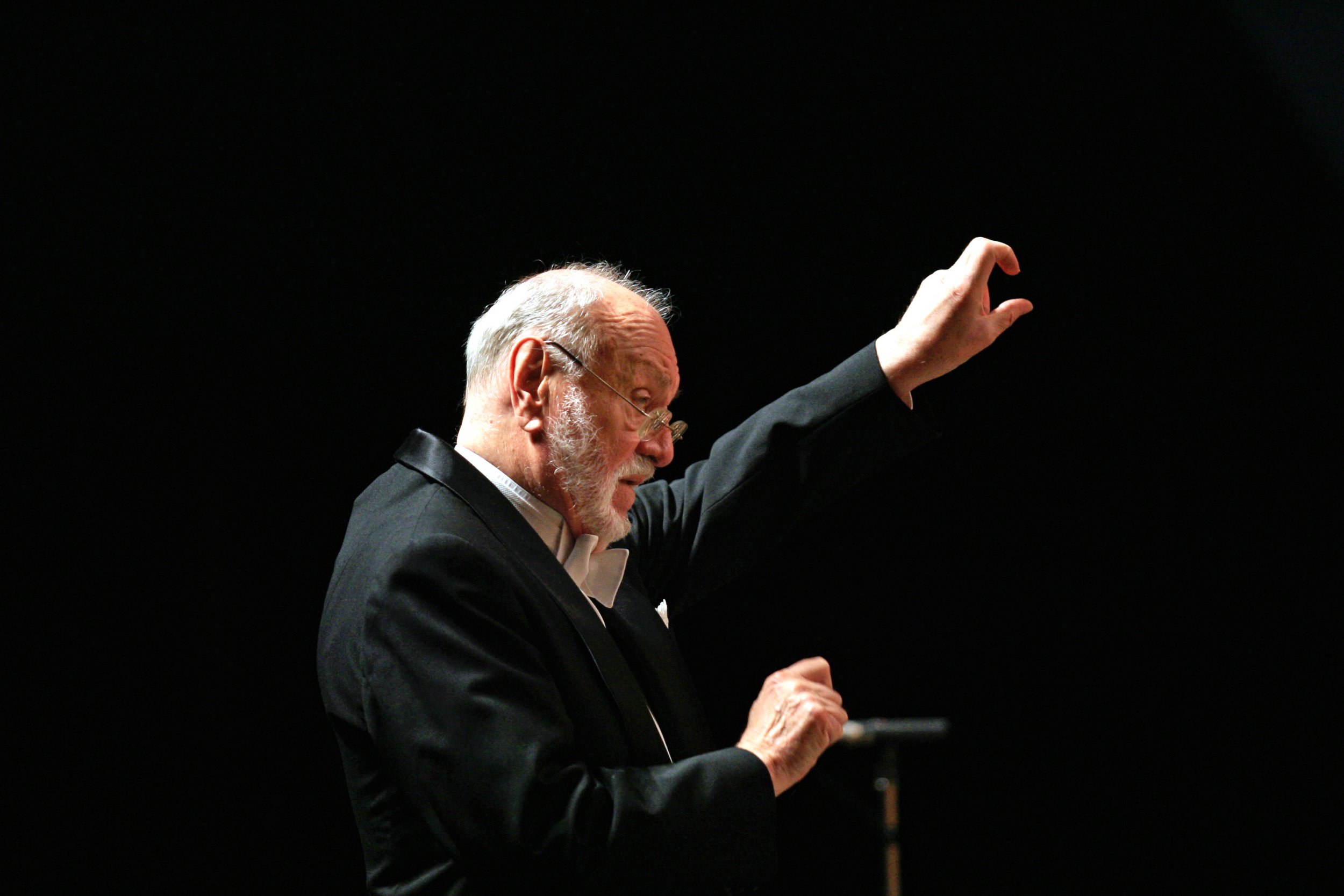
The transformative force behind the New York Philharmonic's 1990s revival, Kurt Masur, died on Saturday at the age of 88. The philharmonic released a statement confirming that the former music director emeritus died from complications due to Parkinson's disease.
When Masur took over as the music director in 1991, he was saddled with an orchestra that had seen better days. In his role, which he would hold until 2002, he helped the philharmonic evolve into an exciting place for paradigm-shifting performances, even as he was entrenched in what the The New York Times called "faithful" interpretations of canonical works.
Masur was born in Brieg, Germany (now Poland), in 1927. He was a talented multi-instrumentalist, and as a young man trained as a pianist, a percussionist, a cellist and an organist. He enrolled in Breslau's National Music School at age 16, but following a tendon injury in his right hand, he switched to conducting, which he studied alongside composition at the Leipzig Conservatory.
Masur specialized in the work of European composers like Brahms, Mahler and Mendelssohn during his tenures between the 1960s and the 1980s as the music director of the Komische Oper in Berlin and of the Dresden Philharmonic, and then as the esteemed Kapellmeister (meaning "master of the chapel") of the Gewandhaus orchestra.
The New York Philharmonic in 1990 sought a director who could tame an orchestra that at the time, from all accounts, was disorganized and hell-bent on a contemporary approach that wasn't working.
Then the bolo-tie-clad Masur, who had previously been a guest conductor for the Philharmonic, was tapped to take over. He soon ushered in bigger promotions for the orchestra, a more rigorous work ethic for the musicians, improvements to the aging acoustics of the philharmonic's home (the Avery Fisher Hall), outreach that helped to diversify the audience and new works from renowned composers, Sofia Gubaidulina and Hans Werner Henze among them.
"I remember when I asked one of the orchestra committee after my appointment here, 'Why me?'" Mr. Masur said in an interview with the paper Scotland in the 1990s. "He said, 'Because you do not fear orchestras.'"
Perhaps what is most resonant about Masur's work was that he treated music as a universal, unifying concept, instead of as an elitist activity reserved for the uber-rich. Shortly after the September 11 attacks, he led the philharmonic in a widely praised, nationally televised memorial performance of "German Requiem," by Brahms.
He is survived by his wife, Tomoko Sakurai, and their son, Ken-David, as well as two daughters, Carolin and Angelika, and two sons, Michael and Matthias, from a previous marriage.
Uncommon Knowledge
Newsweek is committed to challenging conventional wisdom and finding connections in the search for common ground.
Newsweek is committed to challenging conventional wisdom and finding connections in the search for common ground.
About the writer
Paula Mejia is a reporter and culture writer. Her work has appeared in The Guardian, Rolling Stone, The A.V. Club, Pitchfork, ... Read more
To read how Newsweek uses AI as a newsroom tool, Click here.








